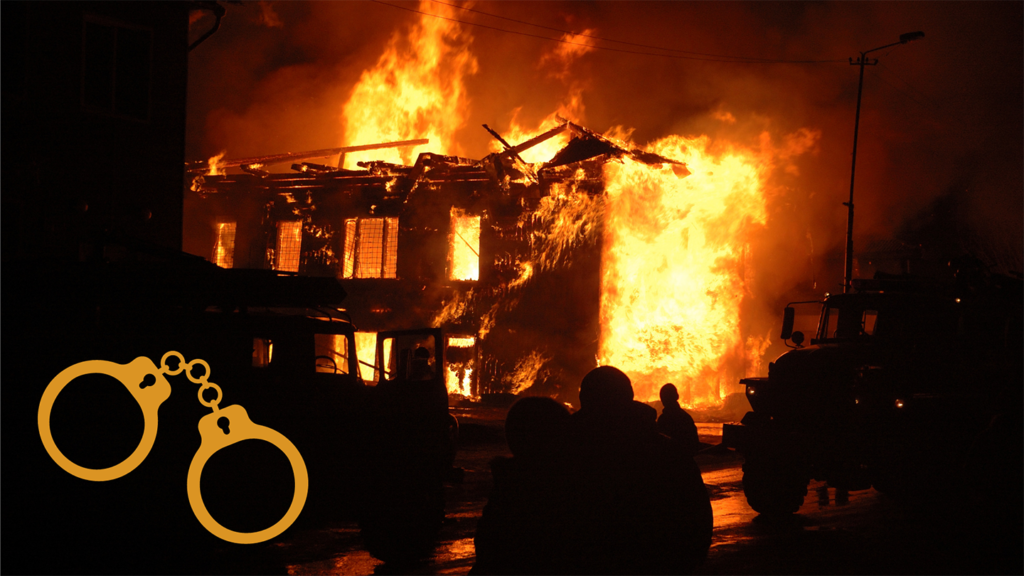Barcode Fraud: Dishonestly obtaining property by deception
In a bizarre yet surprisingly effective scheme, a 54-year-old Wollongong man stole hundreds of dollars worth of groceries using a Caramello Koala barcode. His...
WE'RE IN IT TO WIN IT
This form submission is encrypted and secured to ensure your information remains confidential.
We have won several criminal defence and client service excellence awards every year up to and including 2025.
60+ Years of combined experience defending criminal matters means a successful outcome is on the table.
We’re in it to win it and we fight hard for our clients. That’s why anywhere you look you will find 5 star reviews.
Get urgent premium legal representation now and pay later with affordable fortnightly or monthly payments.
We have won several criminal defence and client service excellence awards every year up to and including 2025.
60+ Years of combined experience defending criminal matters means a successful outcome is on the table.
We’re in it to win it and we fight hard for our clients. That’s why anywhere you look you will find only 5 star reviews.
Get urgent premium legal representation now and pay later with affordable fortnightly or monthly payments.
In a bizarre yet surprisingly effective scheme, a 54-year-old Wollongong man stole hundreds of dollars worth of groceries using a Caramello Koala barcode. His...
In a sweeping operation across multiple states, Australian Federal Police (AFP) have arrested the alleged mastermind behind the encrypted messaging platform, Ghost, which was...
The Facts behind the Common Assault Charge Our client, a middle-aged bank worker residing with her partner whom she had been married to for...
In October 2023, we appeared in Campbelltown District Court on behalf of a 32-year-old man charged with two counts of sexual intercourse without consent....
Partner SC309 and permanent Partner SC100 simultaneously after claims for domestic violence Congratulations to our client who was granted both her temporary Partner sc309...
Our solicitor, Mr. Wissam Philopos, represented a young man at the Downing Centre Local Court in relation to a serious matter for which our...
Our Solicitor, Nicholas Hardy, represented a man at Parramatta Local Court in relation to the following charge: Common assault (domestic violence) pursuant to section...
Our Solicitor, Nicholas Hardy-Clements, represented a 40-year-old man at Parramatta Local Court in relation to a common assault domestic violence related offence pursuant to...
Successful Outcome for Common Assault (Domestic Violence Related) Our solicitor, Nicholas Hardy-Clements, represented a young man at Downing Centre Local Court in relation to...
Bail Granted for Common Assault Our solicitor, Nicholas Hardy-Clements, represented a young male at Burwood Local Court, seeking an application for bail, in relation...

Note that this article deals specifically with the law of arson in NSW. For legal advice relating to the relevant law of another State (Victoria, South Australia, Queensland, etc.), please contact us for a free consultation. If you think you may be able to report an arson attack or have seen something suspicious, contact us or call Crime Stoppers on 1800 333 000.

As noted above, recent amendments to the Crimes Act 1900 (NSW) have been introduced to deal with the significant risk of widespread damage to property, people, animals and land that might be caused by arsonists who are responsible for setting fires that may result in a bushfire. In recent years, Australia has faced increasingly disastrous bushfire seasons, of which arson attacks are often a contributing factor.
The amendments introduced section 203E, which provides that “a person who intentionally causes a fire and who is reckless as to the spread of the fire to vegetation on any public land or on land belonging to another“, is guilty of an offence. The maximum penalty for a breach of section 203E is 21 years imprisonment.
Given the risk that a bushfire may endanger the life of people, there is also a risk that someone who is found guilty of bushfire arson, where a bushfire does kill a person, may also be held liable for manslaughter or murder.
Note however that section 203E specifically excludes where a person is employed by a fire service, and is lighting fires under the direction of a firefighter (i.e. in the course of bushfire fighting or hazard reduction operations). A person acting under the direction of a firefighter cannot be held liable for an offence, under this provision.


| Arson Offence NSW | Maximum prison sentence |
|---|---|
| Destroying or damaging property by fire | 10 years |
| Destroying or damaging property by fire in company | 11 years |
| Destroying or damaging property by fire during public disorder | 12 years |
| Destroying or damaging property with intent to injure a person | 14 years |
| Dishonestly destroying or damaging property by fire | 14 years |
| Causing a bushfire | 21 years |
| Destroying or damaging property, with the intention to endanger the life of another | 25 years |
Disclaimer
The above is general legal information and should not be considered legal advice. You should speak with one of our migration lawyers for legal advice tailored to your specific legal matter. The courts and tribunals deal with matters on a case by case basis. It should also be noted that there may be delays due to COVID-19. Our lawyers are based in Sydney, we cannot assist with legal advice in a range of jurisdictions whether in Melbourne, Brisbane, Adelaide or Perth.
If you require legal advice in any criminal law matter, our expert criminal lawyers specialise in a range of criminal offences including those discussed in this article. Contact us for a free, honest consultation about how we can assist in your matter today.

WE'RE IN IT TO WIN IT
This form submission is encrypted and secured to ensure your information remains confidential.
Related Criminal Law News and Resources
Understanding Drug Offences in Australia If you have been charged with drug offences, it is crucial to understand your legal
Applying for an AVO in NSW: Your Rights and the Legal Process What Is an Apprehended Violence Order (AVO)? If
At Jameson Law we operate on the premise that you are innocent until proven guilty and leave judgment to the
Have you been charged or accused of committing common assault against another person? Do you know the seriousness of the
Fraud is a serious charge and legal advice should be sought as early as possible. Fraud offences relate to the
WE'RE IN IT TO WIN IT
This form submission is encrypted and secured to ensure your information remains confidential.





Registry: Monday to Friday, 9:00am to 4:30pm
Court Operating Hours: 9:30am-4:30pm
Registry Hours: 9:00 – 4:30
Telephone Hours: 8:30 -4:30
Days open: Mon-Fri
Registry Hours: 9:00 – 4:30
Telephone Hours: 8:30 – 4:30
Days open: Mon – Fri
Registry Hours: 9:00 – 4:30
Telephone Hours: 8:30 – 4:30
Days open: Mon – Fri
Registry Hours: 9:00 – 1:00 and 2:00 – 4:30
Telephone Hours: 8:30 – 4:30
Registry Hours: 9:00 – 1:00 and 2:00 – 4:30
Telephone Hours: 8:30 – 4:30
Registry Hours: 9:00 – 1:00 and 2:00 – 4:30
Telephone Hours: 8:30 – 4:30
Registry Hours: 9:00 – 1:00 and 2:00 – 4:30
Telephone Hours: 8:30 – 4:30
Registry Hours: 9:00 – 1:00 and 2:00 – 4:30
Telephone Hours: 8:30 – 4:30
Registry Hours: 9:00 – 1:00 and 2:00 – 4:30
Telephone Hours: 8:30 – 4:30
Registry Hours: 9:00 – 1:00 and 2:00 – 4:30
Telephone Hours: 8:30 – 4:30
Registry Hours: 9:00 – 1:00 and 2:00 – 4:30
Telephone Hours: 8:30 – 4:30
Registry Hours: 9:00 – 1:00 and 2:00 – 4:30
Telephone Hours: 8:30 – 4:30
Registry Hours: 9:00 – 1:00 and 2:00 – 4:30
Telephone Hours: 8:30 – 4:30
Registry Hours: 9:00 – 1:00 and 2:00 – 4:30
Telephone Hours: 8:30 – 4:30
Registry Hours: 9:00 – 1:00 and 2:00 – 4:30
Telephone Hours: 8:30 – 4:30
Registry Hours: 9:00 – 1:00 and 2:00 – 4:30
Telephone Hours: 8:30 – 4:30
Registry Hours: 9:00 – 1:00 and 2:00 – 4:30
Telephone Hours: 8:30 – 4:30
Registry Hours: 9:00 – 4:30
Telephone Hours: 8:30 – 4:30
Days open: Mon – Fri
Registry Hours: 9:00 – 4:30
Days open: Mon-Fri
Registry Hours: 9:00 – 4:30
Days open: Mon-Fri
Registry Hours: 9:00 – 4:30
Days open: Mon – Fri
Registry Hours: 9:00 – 4:30
Days open: Mon – Fri
Registry Hours: 9:00 – 1:00 and 2:00 – 4:30
Telephone Hours: 8:30 – 4:30
Registry Hours: 9:00 AM – 4:30 PM
Telephone Hours: 8:30 AM – 4:30 PM
Days Open: Monday to Friday
Registry Hours: 9:00 AM – 4:30 PM
Telephone Hours: 8:30 AM – 5:00 PM
Days Open: Monday to Friday
Monday to Friday, 8:30 AM – 4:30 PM
Monday to Friday, 8:30 AM – 5:00 PM
Registry Hours: 9:00 AM – 4:30 PM
Telephone Hours: 8:30 AM – 4:30 PM
Days Open: Monday to Friday
Registry Hours: 9:00 AM – 4:30 PM
Telephone Hours: 8:30 AM – 4:30 PM
Days Open: Monday to Friday
Registry Hours: 9:00 AM – 4:30 PM
Telephone Hours: 8:30 AM – 4:30 PM
Days Open: Monday to Friday
Registry Hours: 9:00 AM – 4:30 PM
Telephone Hours: 8:30 AM – 4:30 PM
Days Open: Monday to Friday

Indigenous Acknowledgement
We acknowledge the Australian Aboriginal and Torres Strait Islander peoples as the first inhabitants of the nation and the traditional custodians of the lands where we live, learn and work.
WE'RE IN IT TO WIN IT
This form submission is encrypted and secured to ensure your information remains confidential.